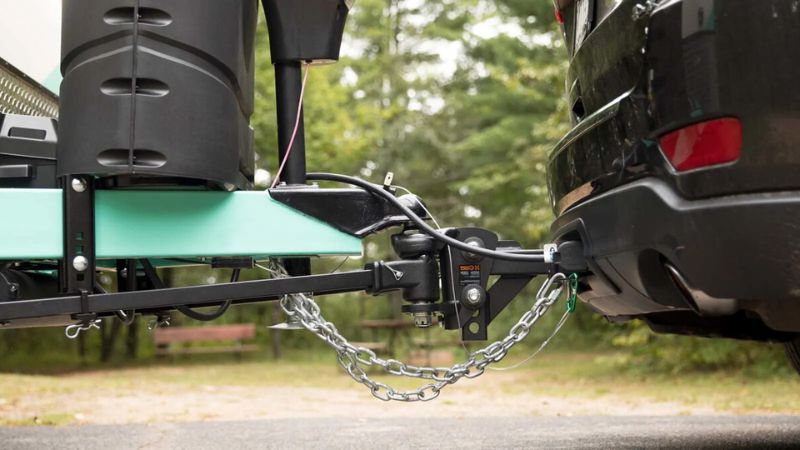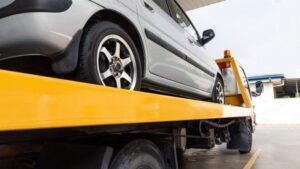Right Towing Hitch For Your Vehicle – Towing safely and effectively requires that you select the appropriate towing hitch for your car. Choosing the best hitch type can be overwhelming due to the wide variety available. By ensuring that your vehicle can safely handle the load, the ideal hitch lowers the risks associated with transportation. Knowing the differences between hitch classes can help you make an informed choice because they are made for varying weight capacities, vehicle types, and towing requirements. The important things to think about, like hitch classes, compatibility with your car, and the kind of towing you intend to do, will be broken down in this guide. Having the appropriate towing hitch can be crucial when transporting a camper, trailer, or boat. Learn all you need to know to choose the Right Towing Hitch For Your Vehicle with confidence by reading on.
How to Choose the Right Towing Hitch For Your Vehicle?
Understanding Different Types of Towing Hitches
Understanding the various hitch types and their intended applications is the first step in selecting the appropriate towing hitch type. Each of the five primary hitch classes—Class I through Class V—is rated for a particular weight capacity. Class I hitches can support loads up to 2,000 pounds, making them perfect for light-duty towing applications like bike racks or small trailers. Class II hitches are appropriate for slightly heavier jobs, such as towing a small boat, because they can handle loads of up to 3,500 pounds.
On the other end of the spectrum, Class III hitches are perfect for mid-sized campers or larger trailers because they can support up to 6,000 pounds. Class IV and Class V hitches can support up to 12,000 and 20,000 pounds, respectively, and are made for heavy-duty towing. In general, these hitches are advised for towing boats, RVs, and large trailers. By being aware of these hitch types, you can make sure your car can safely tow the load and match the right class to your needs.
Also Read:- How To Safely Operate Your Car Tow Dolly
Assessing Vehicle Compatibility
Since not all hitches are compatible with every vehicle, vehicle compatibility is essential when selecting a towing hitch. Consult the owner’s manual to determine your vehicle’s towing capacity before choosing a hitch. The make, model, and engine size of the car all have a big impact on this capacity. Compact cars and SUVs, for example, usually have lower towing capacities than full-sized SUVs or larger trucks. Furthermore, some hitches might need particular mounting arrangements.
While some cars might require extra adjustments, others might have mounting points already installed. Selecting a hitch that fits the frame and towing requirements of your car is crucial. Ignoring compatibility could result in your car performing poorly, having safety problems, and possibly getting damaged. For optimal effectiveness, make sure the hitch you choose is appropriate and compatible with the load you plan to tow by speaking with an expert or consulting the manufacturer’s instructions.
Considering Your Towing Needs
Choosing the appropriate hitch for your car depends in large part on your towing requirements. Start by assessing what you plan to tow on a regular basis. A Class I or Class II hitch is adequate if you intend to transport lightweight objects like a bike rack, kayak, or small utility trailer. A higher-class hitch is required for heavier loads, like campers, boats, or heavy machinery. Think about the terrain you’ll be traveling on and the towing distance in addition to weight. The hitch and your car are put under more stress when you tow large loads over long distances or over difficult terrain, like hilly or mountainous areas.
To manage the higher demands in these situations, a Class III hitch or higher is advised. Specialized hitch accessories, like weight distribution hitches or sway control devices, may also be advantageous for specific towing configurations. During towing, these can enhance control and stabilize the load. You can choose the hitch that best fits your car and your intended purpose by carefully evaluating your towing requirements.
Installing and Maintaining Your Towing Hitch
For safe and dependable towing after you’ve chosen the ideal towing hitch, correct installation and upkeep are crucial. Some hitches are easy to install, but others—especially for heavy-duty setups—may need expert help. To guarantee that every component is firmly fastened, carefully follow the manufacturer’s instructions during installation. Following installation, regular maintenance will help your hitch last longer and stay in good operating order. Check your hitch frequently for wear indicators like corrosion, rust, or loose bolts, and replace any damaged components right away.
Furthermore, keeping the hitch’s parts lubricated can stop rust and maintain their smooth operation. When not in use, it’s also critical to store your hitch and towing accessories correctly to reduce exposure to weather and moisture. Your towing hitch is a worthwhile investment for many years to come if it is installed and maintained properly, which can greatly improve its performance and safety.
Evaluating Hitch Accessories for Enhanced Towing Performance
Aside from the main hitch, a number of accessories can improve towing efficiency and security. By evenly distributing the weight across your car’s axles, weight distribution hitches help you balance heavier loads, lessen the strain on your rear axle, and improve handling. A sway control device is another useful add-on that improves overall stability by reducing trailer sway in windy or abrupt lane changes.
A hitch extender can offer additional space between your car and the towed load if you intend to tow frequently or over long distances, preventing damage during abrupt turns. D-rings, ball mounts, and tow hooks are other practical add-ons that provide more control and versatility. Purchasing these accessories can increase your control over your car and the load it is carrying while also making the towing process safer and more efficient, depending on your particular needs.
Also Read:- How To Prepare Your Vehicle For Towing
Final Thoughts on Choosing the Right Towing Hitch
Hitch types, vehicle compatibility, and towing requirements must all be carefully considered when choosing the best towing hitch for your car. You can choose a hitch that improves your car’s towing capacity while maintaining safety if you are aware of these factors. Your hitch’s overall performance and longevity can also be increased with proper installation, upkeep, and the addition of useful accessories. Taking the time to select the ideal hitch can significantly improve your towing experience, regardless of how often you tow or how experienced you are.
Conclusion
Choosing the right towing hitch is crucial for a safe and successful towing experience. By understanding the various hitch classes and considering your vehicle’s towing capacity, you can ensure a smooth towing process. Remember to match the hitch with your specific towing needs, and always prioritize safety. With the right hitch, you can tow confidently, knowing that your vehicle is equipped for the job. Take the time to research and make an informed decision, so you can enjoy worry-free towing for years to come.
FAQs
What are the different classes of towing hitches?
Towing hitches come in five main classes, ranging from Class I to Class V. Each class is designed for different weight capacities, with Class I for light loads and Class V for heavy-duty towing.
How do I know which hitch is compatible with my vehicle?
Check your vehicle’s towing capacity and specifications in the owner’s manual. Match this with the hitch class and type that meets your towing needs and vehicle’s capacity.



